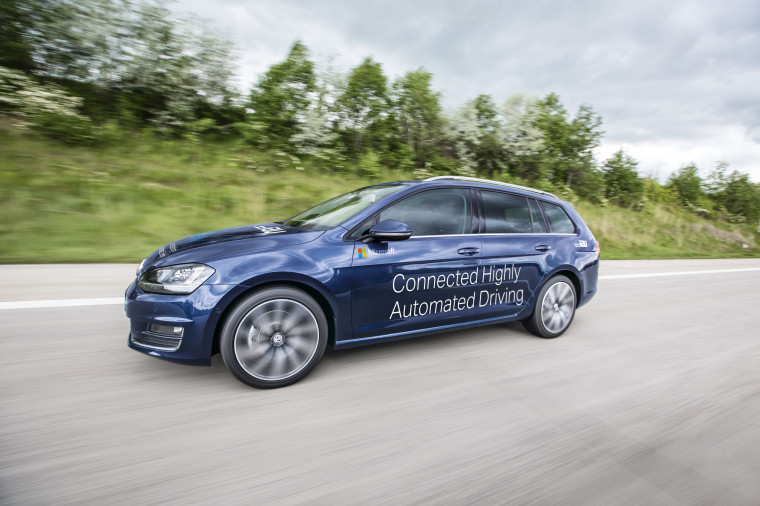
Microsoft is no stranger to the world of smart cars, having been developing dashboard technologies for many years now. But it’s the company’s latest project, developed together with IAV, that’s really setting a stage for Microsoft’s future inside of our vehicles.
Announced at CES, Microsoft and IAV have developed a self-driving car that has very interesting features for road safety and driving technology. The Connected Highly Automated Driving vehicle, called CHAD, can interact with other devices it encounters on the road to “see” the world around it and ensure both the passengers’ and the pedestrians’ safety.
For example, unlike other self-driving cars that rely on cameras to detect obstacles, a CHAD vehicle can also use info coming from the cloud, or from nearby devices. One scenario that was demoed was with a pedestrian walking behind a parked vehicle and being hidden to a car that’s coming down the road. But because the pedestrian was using a Microsoft Band and/or a smartphone, the car coming down the road knew that a hidden pedestrian was there, and consequently slowed down and prepared to brake.
This is enabled a technology called V2X, referring to a vehicle communicating with x number of external devices that are around, including smartphones, IoT devices embedded in the road or stop signs, wearables on pedestrians, other smart cars on the road and so on.
Of course, seeing as this is a Microsoft-powered self-driving car, it relies on Azure, Cortana, Bing and other cloud technologies that the company is developing. And it also gives users access to certain applications like Skype for Business, Cortana voice commands and Groove Music. But the V2X technology is the real focus here.
Microsoft and IAV have already tested the technology by traveling more than 70.000 kilometers, that’s 43,000 miles, across Europe and the US. And both companies hope to develop this much further and then license to other auto manufacturers. Eventually, cars could simply come equipped with a CHAD system, much like they do with ABS or other safety features today, though that future is still some years away.

















5 Comments - Add comment